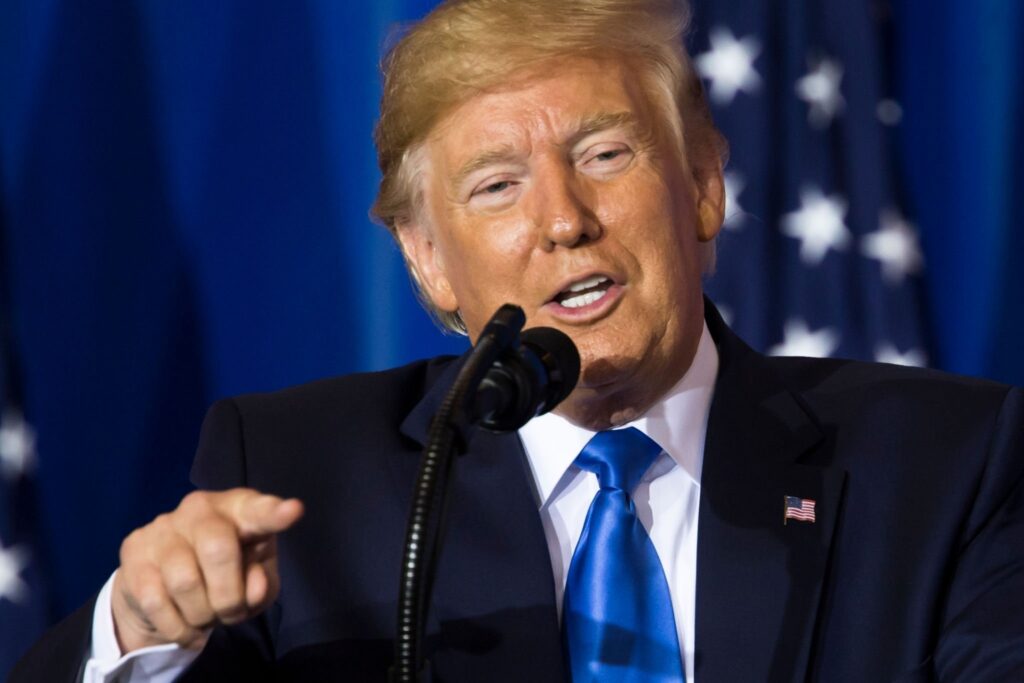In 2016, FBI investigators conducted a search on Harold Martin’s property in Maryland, where they discovered classified documents scattered throughout his home, car, and storage shed. These documents included highly sensitive material at the top-secret level.
In contrast to former President Donald Trump, Harold Martin, a former contractor for the National Security Agency, did not dispute the allegations. In 2019, he pleaded guilty, acknowledging that his actions were “wrong, illegal, and highly questionable.” Despite his expressions of remorse and admission of guilt for willfully retaining national defense information, he received a severe sentence of nine years in prison.
The resolution of that particular case stands as a foreboding indicator of the legal risks Donald Trump could encounter, given the 37 felony counts he currently faces. Among these charges, 31 falls under the Espionage Act, a century-old statute employed to prosecute individuals, including Harold Martin, accused of unlawfully retaining classified documents.
Even individuals like Martin who have pleaded guilt and assumed accountability have nevertheless received lengthy prison terms.
“When they decide to pursue a willful mishandling case, it’s to send a message: that we take these cases very seriously,” remarked Michael Zweiback, a former Justice Department prosecutor and defense attorney. “They almost always are seeking jail time.”
So, How Much Prison Time Could Donald Trump Face?
Determining the potential prison sentence for the former president in the event of a conviction is a complex matter.
Basically, the decision rests with the trial judge, who happens to be a Trump appointee and has already displayed a proclivity for ruling in his favor. Additionally, there are other variables to consider, such as the logistical and political complications associated with incarcerating a former president, making it challenging to gauge the exact outcome.
Under the Espionage Act, the offense carries a maximum penalty of 10 years in prison. However, it is uncommon for first-time federal offenders to receive sentences close to the maximum.
In Trump’s alleged conduct, prosecutors have identified multiple aggravating factors beyond mere retention. They accuse him of attempting to involve others, including a lawyer and aides, in concealing the records from investigators, as well as displaying certain records to visitors.
The indictment also includes additional charges, such as conspiracy to obstruct justice, which could lead to a maximum sentence of 20 years in prison.
Recent Convictions and Trump’s Stance
In recent years, Justice Department prosecutors have utilized the Espionage Act provision to target various defendants. Among them is Elizabeth Jo Shirley, a West Virginia woman who retained an NSA document pertaining to a foreign government’s military and political affairs. Shirley pleaded guilty to willful retention in 2020 and received an eight-year prison sentence.
Another individual, retired Air Force intelligence officer Robert Birchum, recently faced sentencing and was handed a three-year prison term after admitting to keeping classified files at his residence, overseas officer’s quarters, and a storage pod in his driveway.
While many defendants have chosen to plead guilty rather than face trial, not all have ended up incarcerated. In the case of Trump, who also faces charges related to hush-money payments in New York state court, there are no indications of a potential plea deal. He vehemently maintains his innocence, going as far as personally attacking Justice Department special counsel Jack Smith shortly after his appearance in a federal court in Miami.
Trump Has Some Avenues to Try To Contest The Charges
Despite the specific details outlined in the indictment, Donald Trump has certain avenues to contest the charges against him.
Judge Aileen Cannon has been assigned to the case, and she previously ruled in favor of Trump when he sought to appoint a special master for an independent review of the seized classified documents. Judge Cannon expressed concerns about the “stigma” associated with an FBI search of Trump’s residence and highlighted the potential reputational harm that a future indictment based on items that should have been returned to him could cause. However, her ruling was unanimously overturned by a three-judge panel from the U.S. Court of Appeals for the 11th Circuit, with legal experts widely criticizing her decision as extraordinary and overly expansive.
In the upcoming months, Judge Cannon will play a significant role in shaping the trial, including determining its timing and the admissibility of evidence.
Additionally, prosecutors face the challenge of a jury pool in Florida, where Republicans have made significant political gains. This jury pool is likely to be more favorable to Trump compared to one in the predominantly Democratic jurisdiction of Washington, D.C.
However, legal experts such as Stephen Saltzburg, a professor at George Washington University Law School and former Justice Department official, suggest that Justice Department special counsel Jack Smith may actually welcome a Florida jury. A potential conviction by a Florida jury would make it more difficult to argue that the jury had an anti-Trump bias.

